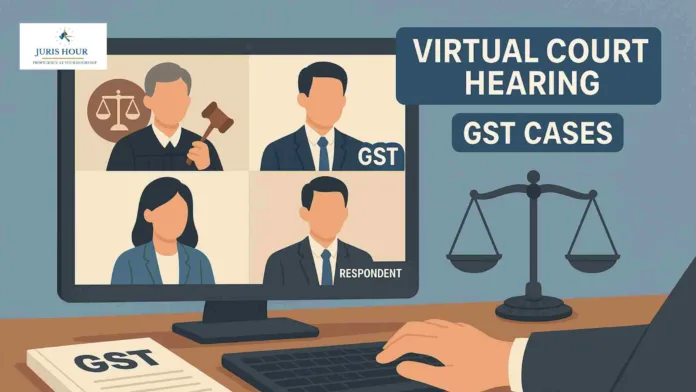The Delhi Government has issued the guidelines for Mandatory Conduct of Personal Hearings through Virtual Mode in all Proceedings under the Delhi GST Act, 2017.
A personal hearing is a vital procedural safeguard that ensures individual(s) or entities facing tax demands or penalties are granted a fair opportunity to be heard and to present their case. Provisions under sub-section (4) of Section 75, sub-section (3) of Section 126, and sub-section (8) of Section 107 of the Delhi GST Act, 2017, explicitly mandate the granting an opportunity of a personal hearing before any adverse order is passed by the Proper Officer or the Appellate Authority. These provisions underscore the necessity of adhering to the principles of natural justice in both letter and spirit.
The Department of Trade and Taxes, Government of NCT of Delhi is committed for fostering transparency, efficiency, and ease of compliance in tax administration. In pursuit of these objectives-and as a step towards establishing a faceless and technology-driven mechanism under GST-the Department has decided to make it mandatory to conduct all personal hearings in GST proceedings through virtual mode, by ensuring greater accessibility and streamlined processes f o r all taxpayers.
To ensure transparency, efficiency, and strict adherence to the principles of natural justice, the following guidelines are being issued to outline the procedures and protocols to be followed during virtual hearings.
All Proper Officers, including Appellate Authorities-hereinafter referred to as “the Authority”- appointed and functioning under the provisions of the Delhi GST Act, 2017 and the Rules framed there under, are hereby directed to comply with the guidelines.
In any proceeding, all the personal hearings shall mandatorily be conducted in virtual mode and no person shall be required to appear in person for personal hearing.
The virtual hearings shall be conducted through available applications such as WEBEX, Google Meet etc. The date and time of hearing along with a link for the virtual hearing shall be informed well in advance to the taxpayer or authorized representative through the registered email id and/or mobile number.
In the e-mail, Authority shall also provide details of the staff/officer w h o would provide assistance to the party, for conducting the virtual hearing. This link shall not be shared with any other person without the consent of the officer.
The taxpayer or his authorized representative shall download the required application on their computer system/laptop/mobile phone beforehand and be ready with appropriate network connectivity and bandwidth for the virtual hearing and join the same at the time and date allocated to them.
The taxpayer or authorized representative shall be required to submit his vakalatnama or authorization letter along with the copy of his photo-id card and provide contact details well in advance to the officer, devoid of which he shall not be allowed to represent the taxpayer.
The virtual hearings shall be conducted from office of the concerned Authority only. All persons participating in the virtual hearing shall be appropriately dressed and shall maintain the decorum and dignity at all times.
The submissions made by the taxpayer or his authorized representative during the virtual hearing shall be recorded as “Record of Personal Hearing” by the concerned Authority on online PH module and after generating it in pdf format, Authority shall put his signature and stamp thereon. A copy of above-said “Record. Öf Personal Hearing” shall be shared on the registered e-mail id of the taxpayer. Additionally, it shall also be sent on the e-mail id provided by the taxpayer or his authorized representative.
In case of any adjournment, a notice of adjournment shall also be sent through BO Portal mentioning details of next date of hearing.
If the taxpayer/authorized representative prefer the Authority to consider any document including additional documents during the virtual hearing, he may do so by sending the scanned copy of such self-attested document via official mail to the Authority concerned before virtual hearing.
In cases of requirement of submission of physical set of documents the same shall be submitted after due attestation by the taxpayers or his authorized representative, to the Authority concerned during working hours.
The proceedings of virtual hearing as well as documents submitted in the manner shall be deemed to be valid bove man hearing document/record for the purpose of the CGST/DGST Act and Rules made there under read with section 4 of the Information Technology Act, 2000.
It is made clear that while conduct of personal hearing through virtual mode is being made mandatory, there may yet be rare and accentuating circumstances on the part of the taxpayer or his authorized representative on account of which this cannot be done. Each such request shall be approved only by the Zonal In-charge/ officer concerned after recording the reasons for the same.
Read More: New Customs Tariffs for Oil, Gold, Silver In Effect

